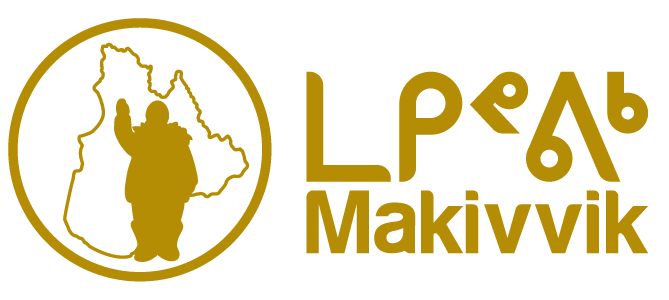Overview:
Makivik Corporation is seeking a consultant(s) to undertake research aimed at documenting Nunavik Inuit Knowledge of Caribou. The research will focus on documenting the knowledge of Nunavik Inuit about the Leaf River Herd and George River Herd caribou (e.g. the historical population trends, biology, behaviour, etc.). Values related to the stewardship of caribou and the cultural importance of this animal will also be documented, as will elements related to the critical habitat of caribou (past and present). This work will serve as the basis for Inuit-led management of the migratory caribou herds occurring in Nunavik. This work should include:
- Semi-directive interviews (individual or small group) in five (5) Nunavik Inuit communities;
- Coding of all information received and data analysis;
- Validation of information with interviewees;
- Drafting of research report; and
- Development of best-practices guide for caribou hunting, based on the knowledge and values of Inuit elders.
Background on Makivik Corporation:
Makivik Corporation (hereafter referred to as Makivik) is the birthright organization that represents the Inuit of Nunavik (Northern Québec). Makivik is mandated to protect the rights, interests and financial compensation provided by the 1975 James Bay and Northern Quebec Agreement (JBNQA), the first comprehensive Inuit Land Claim in Canada, and the more recent offshore Nunavik Inuit Land Claim Agreement (NILCA), for which Makivik is a signatory, and which came into force in 2008.
Makivik represent approximately 12 000 Inuit who are beneficiaries of the JBNQA, of whom the majority live in 14 coastal communities in Northern Québec north of the 55th parallel. Makivik’s core objectives are:
Makivik’s Department of Environment, Wildlife and Research (DEWR) is tasked with representing Inuit perspectives as they relate to wildlife management and Inuit harvesting rights.
Scope
The migratory caribou herds of Northern Quebec have undergone significant declines in recent decades. At a recent workshop on caribou management (financed in part by the Fonds d’initiatives du Plan Nord) it became evident that Nunavik Inuit hunting practices must adapt to reflect the critical state of the George River Herd (GRH) and ongoing decline of the Leaf River Herd (LRH). Inuit hunters have expressed concern about the sustainability of current harvesting practices and have begun implementing concrete actions to address the impacts of (and on) the subsistence hunt.
It has also become clear that the absence of documented Nunavik Inuit knowledge of migratory caribou has been a limiting factor in the ability of Nunavik Inuit to meaningfully engage with governments. For example, the recent COSEWIC assessment of these herds failed to integrate Nunavik Inuit knowledge because it was not readily available to the authors. Similarly, and despite the participation of Makivik Corporation, Nunavik Inuit knowledge has so far played a minimal role (at best) in the development of a Quebec Government-led management plan for the Leaf River Herd.
Nunavik Inuit have indicated an intention to produce a Nunavik Inuit Caribou Protection Plan, which is seen as a local initiative that will complement government initiatives (e.g. Leaf River Herd Management Plan). This plan is expected to address elements such as development impacts, harvesting levels, stewardship practices, and habitat protection. The Inuit Knowledge study will be the cornerstone of this effort, along with the existing body of scientific literature. Work on this plan will commence immediately and information collected via the proposed project will be integrated as it becomes available.
The successful consultant(s) will work with Makivik’s DEWR to further define the research questions and research methodology.
Proposal:
Makivik requires, by no later than 5:00PM on December 18th 2019, a detailed proposal with a cost estimate and projected timelines for the conduct of this Inuit Knowledge study, including completion of deliverables. The work must be completed no later than March 31, 2020. Proposal should include:
- Proposed activities, cost estimates and timeline for the various components of the project;
- Resume of the primary person(s) responsible for project development and coordination;
- Access to an example of previous work;
- References and contact information of people for whom you have conducted similar work.
Role of DEWR:
Makivik staff will be responsible for carrying out the following tasks:
- Select the consultant(s) and collaborate to finalize the scope and nature of work;
- Approve workplans and the research approach;
- Participate in field-work related to data collection and validation;
- Providing Geographic Information Systems (GIS) and mapping support;
- Providing timely review of draft reports; and, timely approvals of plans and reports;
- Assume all costs other than consulting fees (i.e. travel, interviews, interpretation, etc.).
Role of Consultants:
The work of the consultants will include:
- Providing a plan and timeline for completing the tasks
- With the support of DEWR, ensure completion of the tasks.
Selection Process:
The following are the criteria we will use in the selection process:
- Detailed plan and timeline (including projected costs for each component);
- Potential for excellent working relationship;
- Evidence of high standards in conduct of work;
- Experience working with Inuit and familiarity with Nunavik;
- Demonstrated ability to conduct Indigenous Knowledge studies;
- Compliance with deadlines.

